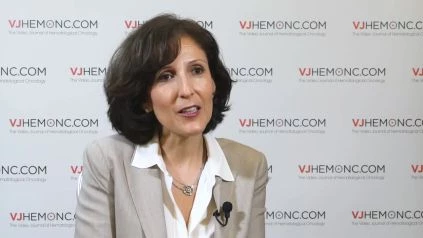Despite major advancements in the understanding of the genetic drivers of acute myeloid leukemia (AML) and the pathophysiology of the disease, standard treatment options for AML patients have not experienced any major changes in the past few decades. Clinicians are often hesitant to send patients into clinical trials if the condition of the patient is unlikely to improve. Here, Gail Roboz, MD, from Weill Medical College of Cornell University, New York City, NY, discusses the potential of newly-approved AML drugs on the market and how these drugs may increase clinical trial participation rates. Clinical trials will provide an in-depth understanding of the effects of incorporating these new drugs into current AML treatment regimens, and on their toxicities. This video was recorded at the 2018 European School of Hematology (ESH) Clinical Updates on Acute Leukemias, held in Budapest, Hungary.
[the_ad id="32629"]

